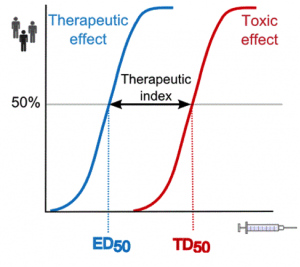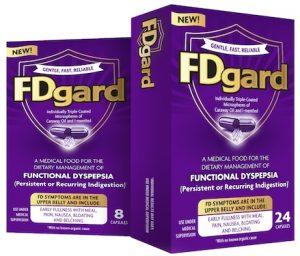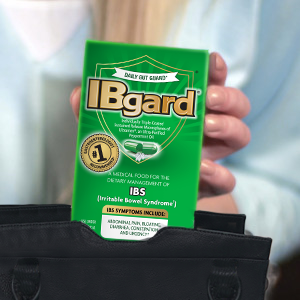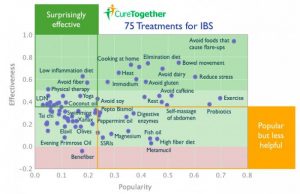“There’s a popular saying among doctors: There’s no such thing as alternative medicine; if it works, it’s just called medicine.”
― Ed Yong“No medicine can compensate for un-healthy living.”
― Renu Chaudhary
Read time: 20 minutes
TL;DR Key Points
- Avoid catchy headlines that overpromise and under-deliver
- Alternative health approaches may help but they have been grossly understudied and often poorly
- Nonetheles, people often want to exhaust natural options before trying Western therapy. For those of you in this camp, this article is for you
- In most cases, IBS is a time dependent, multi-modal phenomenon, and this is worth noting when trying to “fix” it
The headline caught your attention didn’t it? It’s meant to be ironic, intelligent social commentary on the vicissitudes and vagaries of modern medical-political discourse regarding functional bowel disorders in affluent Western industrialized nations.
Don’t I sound smart? Hmm feeling so smart…

In all seriousness, we need to be careful about click bait. IBS is real (no you’re not making it up), it hurts, it can be embarrassing and there is still not enough attention and research dollars devoted to it. Patients often get bounced around from doc to doc (we will explore why that is in future essays) and so they get desperate. They become susceptible to Internet health gurus who describe simplistic pseudoscience and suggest even simpler solutions (alliteration for the win).
Aside from mild cases, strictly speaking there is no “cure” for IBS. It can be managed and controlled in many situations but a “cure” and “fix” model to “get rid off it” is not, unfortunately, a reasonable approach given the current level of the science. Some researchers who advocate for the antibiotic approach to IBS might disagree, but as of yet, this is not been validated in the literature.
But I work in LA, which is the world’s epicenter for all things holistic and “trendy” regardless of their scientific merit (GOOP I’m looking at you and yes I know you specifically counter-market and position yourselves against traditional medicine). My patient’s often are skeptical of “conventional” medicine and want to try non-pharmaceutical or natural approaches first. Few people believe that they need pills to help them do something so intrinsic to their well being like having appropriate bowel habits.
Let’s be clear. Most of these alternative approaches are often poorly studied, frequently based on an inaccurate understanding of GI physiology, and occasionally even downright dangerous (some people are apparently drinking turpentine to get rid of their “candeeeda”).But I respect the fact that some people have skepticism of western medicine and distrust traditional medications. They deserve care and our attention. (Why this skepticism patients have doesn’t extend to “natural” or “holistic” approaches is beyond me. Even if I am wrong, it doesn’t mean Adam the naturopath is right).
Disclosure: always consult your healthcare practitioner before starting any of these, and I take no liability for this if you choose to engage in them. Be safe, be smart, and please don’t do anything stupid. This article does not in any way constitute the practice of medicine or create a patient physician relationship between us.
The vast majority of these “tips” or “bio hacks” are emerging concepts that may have some small studies to support them. Or they may be bio-plausible, meaning that they may work given how we currently understand the pathophysiology of IBS. Having said that, medicine is littered with examples of bio-plausible approaches that end up having less than desirable outcomes (hormone replacement therapy for women).
Moreover, I discuss these because their therapeutic index (TI), a term used in pharmacology, is relatively high. This means there’s a wide safety margin and the potential of true harm to patients is relatively low.

Lastly, it is worth noting these interventions are also not game changers and can take time to work. Consider them investments in your health as opposed to “fixes.” Compound interest, as in finance, can reap wonders (at times) in health but it still takes time.
So let’s get started (in no particular order)
- Fiber
A whole discussion of fiber is beyond the scope of this article, but there is both soluble and insoluble, and it is natural (plant based) so fits our rubric in this article.
Fiber is a double edge sword for IBSers. It can cause bloating quite easily, especially if you ramp up your intake too quickly. Reason being is that fiber is partially digested by gut bacteria that can increase gas production (H2, Methane), numerous metabolites that we are still exploring(the “metabolome”) as well as other agents (short chain fatty acids) that can alter gut function. But without fiber, normal bowel movements are impossible. They can assist in fecal mass develop, regulate gut immunology, stimulate local serotonin secretion (neuro-endocrine effect), which may decrease the visceral hypersensitivity associated with functional bowel complaints.
Psyllium husk tends to be the way to go in my experience although methylcellulose can be helpful also.
It’s remarkable how many people I’ve transformed by simply prescribing fiber supplements. And every time I enter a public bathroom, there’s inevitably some guy groaning and moaning on one of the toilets, shaking the entire stall, and making enough noise to match a small tropical storm simply because of constipation. I always feel bad, so much so that one of these days I’ll toss an apple over the door and hope they take a hint.
It is worth noting there is considerable heterogeneity in studies on fiber and while a recent meta-analysis found a slight benefit for IBS, a Cochrane review performed earlier did not.
Fiber is probably the quickest way to truly “improve” your microbiome, more so than probiotics (more on that later). I put improve in quotes because we don’t really know what a good microbiome is…! “Good” and “bad” are blunt terms that don’t have much meaning in gut science. Keep that in mind the next time you reach for Align, BioK, or any other popular gut health aid that promises to improve your digestion.
- Glutamine
Glutamine is an amino acid that may assist in bolstering tight junctions of the epithelial cells in the lining of the gut mucosa. This paracellular permeability MAY be ONE of MANY reasons that patients with IBS have the problems they do. This has been more popularly translated to “leaky gut,” which sounds snazzy and worrisome at the same time. People get anxious but relieved with this meme. Relieved because it promises to finally explain why they feel the way they do, especially after time crunched brusque doctors have written them off. It’s the “answer.” It’s worrisome because you now know there is something wrong with you that needs fixing, beyond all the other things you already worry about.
Of course, IBS and related functional problems are way more complex than that but the Internet likes simple and easy so has propagated this meme everywhere.
Glutamine’s claim to fame was in the 70’s and 80’s when studies emerged that it could help gut function in cancer and HIV/AIDS patients, and stave off cachexia. Some body builders use it to help recover from workouts. It also has some blood sugar and liver related properties we won’t get into it. By and large, for the healthy individual there’s no need to supplement with it.
But a recent study in Gut suggested that dosing 5 g TID (three times a day) orally can actually improve global IBS symptoms.
If you do decide to take glutamine, take a minimally flavored one. Artificial sweeteners are not doing the intestines any favor. But glutamine raw takes awful (trust me on this), so consider some lemon or other low calorie, natural flavorings.
Also do your homework and make sure you’re getting a safe supplement. The FDA does not regulate supplements by and large (see the documentary “Bigger Faster Stronger” for a shocking expose on this) and so buyers beware. Pharmaceuticals may have side effects but at least you know what those are. Few rigorous studies are done on supplements, by contrast.
Labdoor, NSF, USP, Examine.com, and Consumer Reports are standard Internet resources that put out safety tests on various supplements. They are a good place to start.
- Magnesium
Magnesium is a neuro-depressant (can be used in some cardiac arrhythmias and in asthma) and can help relax muscles (it is often in Epsom salt bathes) and function as a general stress reliever. It is an important co-factor in many metabolic reactions. IV forms have been used for occipital/cervical neuralgia. Various salts exist (glycinate, taurate, oxide etc) and some can induce diarrhea or bowel movements. In fact, GI’s often prescribe Mag Citrate to help patients prep for colonoscopy.
So magnesium may help you calm down and can induce bowel movements. For patients who have IBS-C (constipation) or IBS-M, it can be an option.
If you have an interest magnesium, talk to your doc especially if you have any cardiac history.
Remember the golden rule of medication and supplements: start low and go slow.
- Sleep
The most valuable thing most people can do for their health is to improve their sleep.
The most valuable thing most people can do for their health is to improve their sleep.
The most valuable thing most people can do for their health is to improve their sleep.
Get the theme?
Yes , more than nutrition, exercise, or (occasionally) taking medications.
I am a hypocrite because I have interrupted sleep all the time- due to work (being on call sucks), random thoughts (if it was only a three day cruise on Gilligan’s Island, why did the Howells bring so many clothes?), and Netflixing (Daredevil season 3 can’t wait).
That’s a big statement but I generally feel this holds true. Getting high quality, consistent sleep should be a top priority for IBS patients. It is the central way to regulate your nervous system and “balance your hormones” (oh that popular holistic phrase) and ensure appropriate immune function.
There’s a whole cottage industry of sleep aids and gurus developing from sleep tech (Iphone has an app, Oura Ring and other wearables) to supplements (melatonin, valerian root, herbal teas) to even essential oils and weighted blankets. Find what works for you.
Regardless, your sleeping area should be quiet, dark, and quiet. Think BatCave, except without all the cool toys. But if you have those cool toys, please share them with me.
Eye masks, black out curtains, led light blocking stickers, A/C, white noise machines and the like are all little tools to help control this. If you snore or are on the heavier side, may consider an evaluation for sleep apnea. Insomnia and apnea can elevate your blood pressure and worsen your insulin sensitivity.
Even “silent” acid reflux is a missed cause of insomnia
Wind down before sleep time and let go of the day’s exigencies. Drop the Redbull. Minimize evening screen time. Don’t always be ON. Life is cyclical. Always being on the go just emphasizes our sympathetic nervous system and our global coffee addiction. Do a brain dump beforehand. Don’t read non-fiction if you do read before sleeping (because it can activate your executive planning and thinking functions). Some studies actually demonstrate playing Tetris can help people fall asleep (visual overwriting)
During your day, make sure you’re getting plenty of natural sunlight to help assist in setting your circadian rhythms. And pay attention to what and when you eat at night. Too much found and you’ll be uncomfortable during sleep as intestinal motility slows then. Too little and you’ll be hangry and restless (early am awakenings are common for anyone who’s on a strict diet due to cortisol elevations.)
Similarly, pay attention to nocturnal carb intake. Too many carbs and you’ll be hopped on a small sugar rush. Too little and you may not get their soporific inducing benefits ( most people in the US are usually carb insensitive to a certain degree).
Alcohol is NOT a sleep aid. Yes, it can make you feel sleepy but there is a difference between SLEEP and SEDATION. It is the same reason I am generally loathe to prescribe pills like Ambien (a sedative hypnotic). High quality sleep is hard to obtain with alcohol in your system.
- FDGard/IBGard
Decked out in garish purple and neon green boxes brighter than the sun, these are pills that contain camphor and various other oils that may have some anti-spasmodic effects. FD refers to functional dyspepsia (indigestion like complaints in the absence of heartburn). Unlike other homeopathic supplements, these have been actually studied in small clinical trial. Data at prior GI conferences show that these pills can even be taken prn (as needed) as opposed to a daily regimen and yield similar benefits.


![]()
These have been popular among GI doc’s as a relatively safe way to mitigate some of the cramping that is common with IBS (it’s old school name was “spastic colon”).
- Ginger, Turmeric (Tea), Fennel, Peppermint
There has been some small data supporting peppermint in particular (although it may worsen acid reflux). It’s also one of the agents in IBGard. Turmeric and ginger have been mainstays in Aryuvedic therapy, but may actually have some anti-spasmodic effects on the bowel.
Anecdotally, some of my patients actually find some relief with these agents although it could be placebo effect ( I see no problem with that IMHO) and the benefits are transient.
Tea tends to also have the aura of relaxation and sophistication as opposed to the industrial, productivity nature of coffee. State of mind can strongly influence perception of IBS complaints so if a cup of ginger tea, warmly brewed and conscientiously enjoyed, puts you in a mellow mood then more power to you.
- Intermittent Fasting/Low FODMAPs
What we eat is essential to IBS complaints. That is not to say that improving diet with uniformly and unilaterally “fix” IBS, but it is a place to start.
Low FODMAPs has been discussed before. Please read my microbiome primer first. In essence, FODMAPs is an acronym referring to fermentable carbohydrates that may alter small bowel water content, bacterial metabolism, and produce gas that IBSers can find particularly noxious. Reducing these agents, usually for 4-8 weeks, can improve complaints. A lot of this work initially came from Monash University in New Zealand where sheep outnumber people last time I checked. Not sure if that factoid is relevant but I thought I dropped.
How does the low FODMAP diet actually work to improve things? We are not sure. How long is the effective duration of the diet? We are not sure. When and how should these foods be re-introduced to the diet? Not a clue (yet). But an increasing body of literature suggests this diet can help. Word of warning, it is hard to adhere to. I strongly recommend you do it in consideration with a registered dietitian.
Intermittent fasting is a pet idea of mine. IF has been around for thousands of years but the Inter-webs believes it just discovered it. As with most diet fads, this has been promised to be the solution for everything. That remains to be seen.
A small study in 2006 demonstrated it could have benefits in IBS. Moreover, fasting does allow migrating motor complexes (MMC’s), the so-called housekeeping cells of the body, to use stripping waves to clear intestinal contents and move them forward. It can theoretically protect against dysbiosis, suggest at bacterial overgrowth (SIBO), which part of the mechanism of IBS.
Do not fast without MD supervision. If done inappropriately, it can be dangerous. Moreover, of all the things on the list, this “hack” has the least data to support it. So be smart. But the human gut did not evolve to survive in the constant food exposure environment we all live in. And for most people, fasting automatically cuts out the junk that we all eat too much ( a recent CDC study cites 1/3 Americans eat fast food daily).
For these reasons, it may be worth considering. I am curious to know what more prolonged fasts (3 + days) do to the gut. A lot of patients report both improved and hindered digestion so this is an open question.
- Probiotics
Ohhhh this is a big one. I’m not going to go in all the details on this one here. That deserves a separate post and assumes you’ve read my primer on stress, the gut and the microbiome (start here).
The biggest issue with probiotics is that we don’t know how they function.
Read that again.
Like at a basic level, we don’t know what they do or what gut bacteria do. We have some intelligent ideas and very intelligent people studying this, but we need evidence.
The notion of “good” and “bad” bacteria, akin to the cholesterol issue, masks a dramatic amount of complexity. It is useful as an hand-waiving concept but it does not have any real explanatory power.
A recent editorial on probiotics by supplement watcher Pieter Cohen from Harvard makes some excellent points on their potential toxicities and lack of FDA regulation.
- Yoga/Meditation/Breathing/Acupuncture/MBSR
These are all vary different physical and even meta-physical practices, and I am not trying to gloss over the rich and varied histories. One common theme I see with all of these modalities is in assisting people in getting out of their heads and connecting with their body, which allows them to be more present . IBSers tend to have higher rates of anxiety (future oriented thinking) or depression (past oriented thinking) that can exacerbate their symptoms.
Why are we so focused on diets in America but not so on mental health? What you put in your mind is as important if not much more so than what is on your plate. And as I’ve already discussed, the mind-body dualism of traditional Western Civilization doesn’t hold up in the modern science of neuro-gastroenterology.
Systematic reviews on these topics show that there is a small but persistent benefit to these therapies and may help other in GI conditions like GERD. This isn’t surprising given the GI Triad I previously discussed.Increasingly anecdotal reports (even commented on by the WSJ) show that even gut hypnosis can help attenuate gut discomfort! Yeah, even I’m surprised
So find your path and walk it. There are so many resources for either of these. Calm, Headspace are popular meditation apps. Shambala publications address these topics. Jon Kabat Zinn and Jack Kornfield and Tara Brach are well known thought leaders in mindfulness, which has been shown to improve pain or ability to handle pain and minimize suffering . That’s an important distinction for IBS patients and one lost in Western Medicine. Pain and Suffering are different and need not necessarily prompt each other.
- Walking/exercise – Don’t increase your allostatic load by going all CrossFit. But gentle increasing your activity can help stimulate GI motility. It can be a remarkably centering practice (see the previous item). See it as a recuperative movement process. Walking meditations are even possible.
- Foam Roll – Most people don’t take care of their myofascial health. Most people do not now what their myofascia is. In short, there’s a layer of saran wrap like connective tissue that encompasses most of your muscles, tendons and ligaments together. But more than just wrapping, it has neuro-immunological features as well.
Muscle knots, tightness in various tissues, poor mobility and sub-optimal biomechanics – all of these can impact perception of pain as well as digestion at times.
So learn how to stretch appropriately, understand the basics of effective posture, and the ways to manipulate your soft tissue through foam rolling. Mobility Wod by Kelly Starrett is a good place to start online.
“Gut smashing”, in which you use a tennis or lax ball to improve circulation, lymphatic flow and muscle contractions of the abdomen, can be a practice to consider. However, if pain and cramps are a major part of your symptom complex, then I would NOT recommend this activity.
- Breathing – A whole cottage industry of breathing experts have come up recently, including the work at XPT by famed surfer Laird Hamilton, Brian Mackenzie’s Breathe to Perform, and Wim “the Iceman” Hoff’s breathing courses. We won’t go into the details of these but do realize that most people breathe with their chests as opposed to their abdomens. Moreover, they breathe forward in front of their bodies as opposed to breathing with their backs in a ring around their body. Both of these are problematic and research from Europe suggests that “abdomino-phrenic dysynergia” may contribute to complaints of bloating. In other words, inappropriate use of the diaphragm may be a factor in some GI complaints (shocking, I know, that the entire body is all connected).
So-called diaphragmatic breathing is harder than it sounds. Belly breathing glosses a tremendous of amount of complexity but it conveys the basic premise.
- Social Support – The perception of IBS complaints is strongly influenced by stress and stressors . Read more here. There is some debate as to whether there is any level 1 evidence that stress actually causes IBS (to a certain degree, that depends on how you interpret the word “cause”). Nonetheless, stress sucks and can harm your gut.
Social support can help buttress against these effects. We are social creatures and connecting with others has a host of benefits. So reach out and call someone. Find a support group. Help others. Find avenues for stress relief and anchors in an identity that don’t involve your own visceral complaints.
- Aloe Vera – A recent meta-analysis in the Journal of Neurogastroenterology and Motility (ya know, my Bible) cited small evidence that aloe vera can improve IBS-C with minimal side effects.
Now there were only 3 RCT’s included and effect sizes were small, but Aloe Vera is trendy with the Aryuvedic crowd and can be worth a shot (catch the play on words there?)
- Squatting Potty – Of Shark Tank fame, this is a product that may have some moderate benefit. In effect, it is a stool that you prop your feet on when using the toilet. The premise behind this idea is that there is a muscle hooked around the end of your colon called the pubo-rectalis. It helps assist in continence but if the angle of this “sling” is too acute, it can make it hard to defecate. Does it prevent hemorrhoids? Probably not. Will it make defecation somewhat easier? That’s a case-by-case answer. Try for yourself and please do NOT let me know.
What this won’t do is to assist in the urge to go. That problem, which a lot of patients with IBS-C have, is a neurological or motility concern. But for those who have challenges with “ease of passage” of stool, this is an option.
Now some prominent GI’s, including Stephen Hanauer, disagree. Their argument, if your bowels are already well formed (eg Bristol Scale 4), then what’s the value. But the Bristol scale only indirectly measures of “ease of passage,” by documenting stool appearance and if 20 bucks makes you feel like your straining less, than I think it may be worth considering.
- Water/Coffee –Water is rarely going to help a constipated patient stool but constipation is nearly inevitable if someone is dehydrated. Drinking a large amount of it in the am can activate the gastro-colic reflex, in which gastric distention can trigger the need for a bowel movement. So for patients, with constipation this may help through another mechanism.
Now don’t get me started on alkaline water (cough cough bullshit cough). Regular water is fine, as long as there is no concern for contaminants.
For a similar reason, coffee can help, although it also has independent properties that can assist in GI motility and prompt a bowel movement.
- Other patients! One thing MD’s don’t do well is connect patients to other patients (see social support above). A traditional clinic structure is not designed for this in Western Medicine. But there is more about the lived experience of IBS and related disorders that I can ever fully appreciate. Patients have deep expertise and we need to leverage this to heal others.
Now, Internet and mobile technology is allowing these connections to be possible. Facebook patient groups are connecting people around the world. Patientslikeme.com is another web based social media that prompted this treatment chart (2013) on what patients found most helpful to them – no doctors involved.

Do I understand all of these? No. Why would coconut oil help with IBS? Is it a real effect? Perhaps, perhaps not. But assuming you don’t deluge your body in it, it’s relatively harmless and I see no problem in supporting judicious use of the placebo effect. (The potential lipid effects of ingesting coconut oil are outside of the scope of this article.)
As a side note, I do find it interesting that one of the more popular solutions for IBS is “bowel movement” listed in the upper right corner. Sigh….. So many jokes, too many to tell, my head hurts.
Whew! That’s a lot of ground to cover. I hope this is a start to your journey towards healing.
What’s not on this list: Digestive enzymes, apple cider vinegar, exogenous ketones, and notably cannabis. The latter, in particular, is a complicated discussion I’ll save for a future post.
So I hope this helps. There are no magical bullets. A lot of these are lifestyle oriented. None of these will work if you don’t. These may take the edge off.
Try them, be scientific and track your results while keeping other variables the same, and let me know how it works for you. I would love to hear your comments below.
References:
[1] Zhou et al. Randomised placebo-controlled trial of dietary glutamine supplements for post infectious irritable bowel syndrome. Neurogastroenterology 2018.
[2] Kanazawa M. Effects of Fasting Therapy in Irritable Bowel Syndrome. Int J Behav Med. 2006;13(3):214-20.
[3] Fast Food Consumption in the US. https://www.cdc.gov/nchs/products/databriefs/db322.htm
[4] Pieter Cohen. Probiotic Safety – No Guarantees. Jama September 2018. https://jamanetwork.com/journals/jamainternalmedicine/article-abstract/2702973